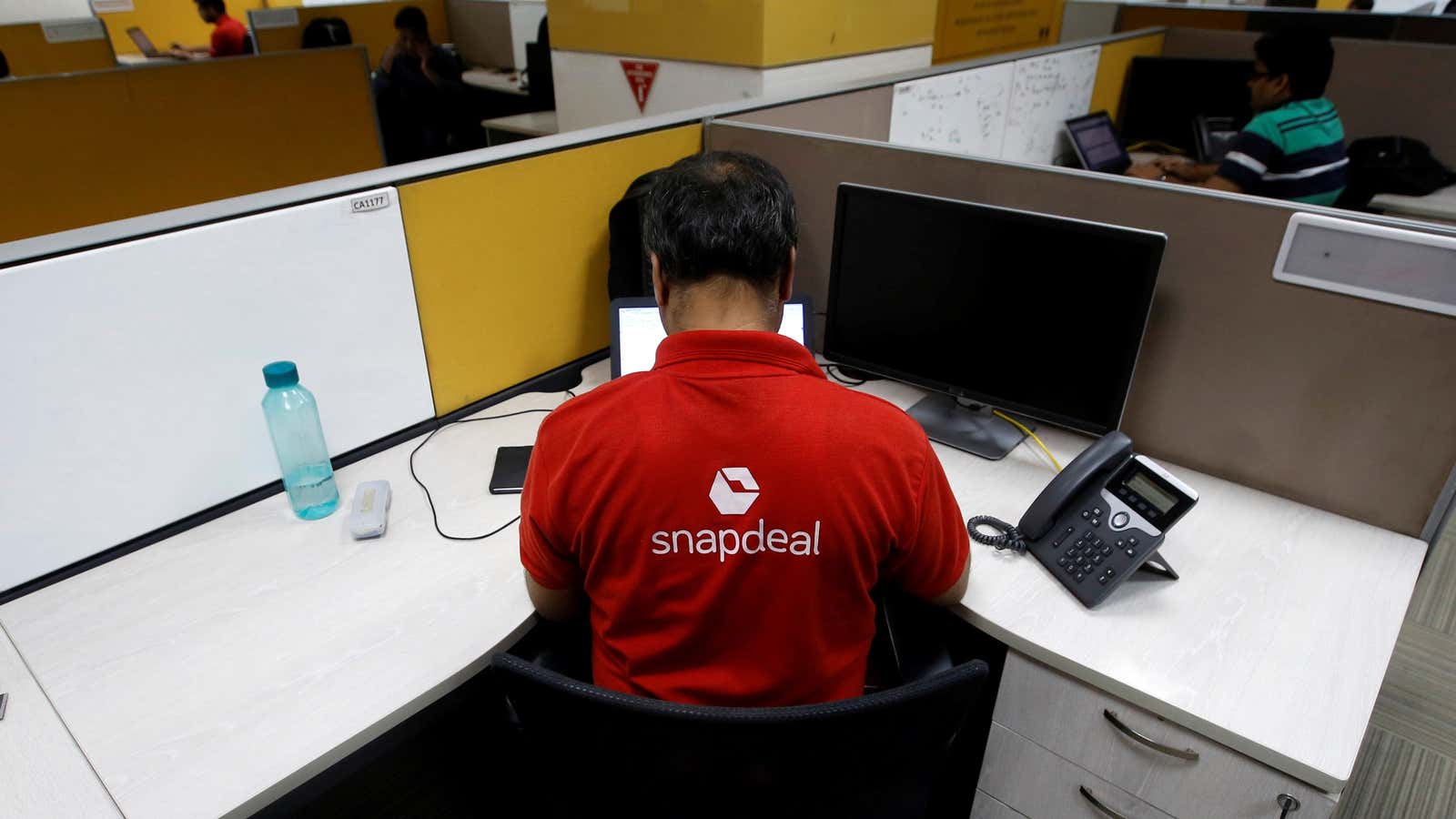It is official: The biggest potential deal in Indian e-commerce is off.
On July 31, the months-long talks of a merger between two of India’s largest domestic e-commerce players—Snapdeal and Flipkart—came to an end.
“The company has now decided to pursue an independent path and is terminating all strategic discussions as a result,” a Snapdeal spokesperson said in a statement. “Snapdeal’s vision has always been to create life-changing experiences for millions of buyers and sellers across India. We have a new and compelling direction—Snapdeal 2.0—that uniquely furthers this vision, and have made significant progress towards the ability to execute this by achieving a gross profit this month. In addition, with the sale of certain non-core assets, Snapdeal is expected to be financially self-sustainable.”
On July 27, Axis Bank, the country’s third-largest private-sector lender, acquired the Snapdeal-owned mobile wallet Freecharge for Rs385 crore ($60 million).
Flipkart, the country’s biggest e-commerce firm, had offered up to $950 million for Snapdeal, according to media reports, and the board of Jasper Infotech, which owns Snapdeal, had in-principle accepted this offer. However, founders Kunal Bahl and Rohit Bansal don’t want to let go of the reins yet, even if it means running a stripped-down version of Snapdeal, Reuters reported unnamed sources as saying.
While Japanese giant Softbank Group, the largest investor in Snapdeal, had been keen on seeing the deal through in order to secure a stake in Flipkart, not all investors were willing to back it. Two early stage investors in Snapdeal, Kalaari Capital and Nexus Venture Partners, were not on board with the proposed sale, Reuters reported.
“Supporting entrepreneurs and their vision and aspirations is at the heart of Masayoshi Son’s and SoftBank’s investment philosophy,” Softbank said in a statement. “As such, we respect the decision to pursue an independent strategy. We look forward to the results of the Snapdeal 2.0 strategy, and to remaining invested in the vibrant Indian e-commerce space.”
Following the decision to go solo, Snapdeal is possibly looking at massive layoffs—cutting down on 90% of the 1,500-person staff—one of Reuters’s sources disclosed. Running a leaner firm aligns with Snapdeal’s goal of being “financially self-sustainable.” Once it shows profits, the firm will look to go public and seek a lucrative exit for its investors, Business Standard reported.
For Snapdeal, which lags far behind its competitors, staying afloat will be a task. It has suffered a slew of top-level exits and is faced with a cash crunch. The company’s valuation slid from $6.5 billion during its last funding round in February 2016 to $1.78 billion in May 2017. Earlier this year, Snapdeal fired over 600 employees and founders Bahl and Bansal took a 100% pay cut.
